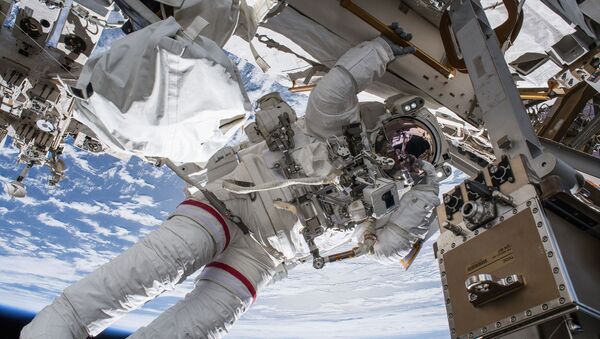Orthostatic hypotension typically occurs when a person stands up after sitting or lying down for an extended period of time - known colloquially as a “head rush” - but returning to Earth from the zero-gravity environment of space can also trigger the condition, which can cause dizziness and fainting.
"One of the biggest problems since the inception of the manned space program has been that astronauts have fainted when they came down to Earth. The longer the time spent in a gravity-free environment in space, the greater the risk appeared to be," Dr. Benjamin Levine, the study's senior author and a professor of exercise sciences at UT Southwestern Medical Center, told media outlets. "This problem has bedeviled the space program for a long time, but this condition is something ordinary people often experience as well."
In the study, 12 astronauts (eight men and four women) between the ages of 43 and 56 did endurance and resistance exercise training for up to two hours every day for six months while in space. When they returned to Earth, they received a saline infusion.
The astronauts’ blood pressures were also taken on each heartbeat before embarking to space, in space and after returning to Earth. The measurements showed very little change in blood pressure during each phase. In addition, the astronauts did not experience any fainting or dizziness after coming back to Earth.
"What surprised me the most was how well the astronauts did after spending six months in space. I thought there would be frequent episodes of fainting when they returned to Earth, but they didn't have any. It's compelling evidence of the effectiveness of the countermeasures — the exercise regimen and fluid replenishment," Levine said.
Despite the promising results, there are some limitations to the study. In addition to the small sample size, the researchers did not discriminate between blood pressure readings taken in space when the astronauts were awake or asleep.
"Understanding the physiology of space flight can be helpful for understanding many conditions experienced by non-astronauts. For example, the exercise program our lab developed for the space program is already helping people with a fainting condition known as postural orthostatic tachycardia syndrome (POTS)," Levine said. "As we prepare to celebrate the 50th anniversary of the Apollo 11 moon landing, it's exciting to think of how our exploration in and of space can lead to important medical advances here on Earth."

